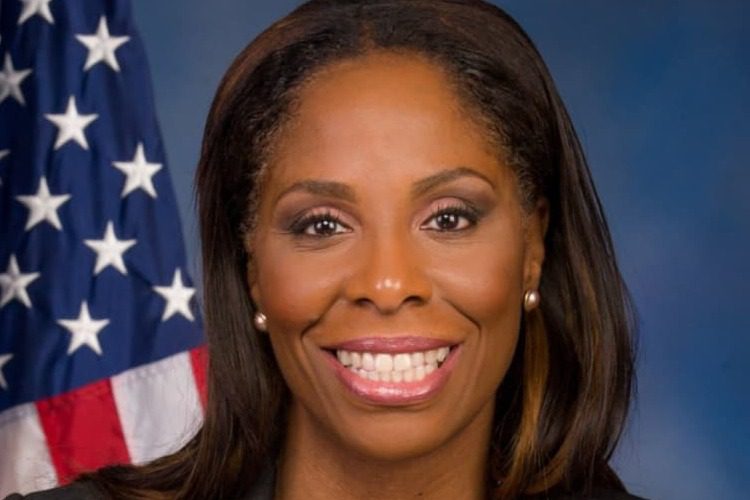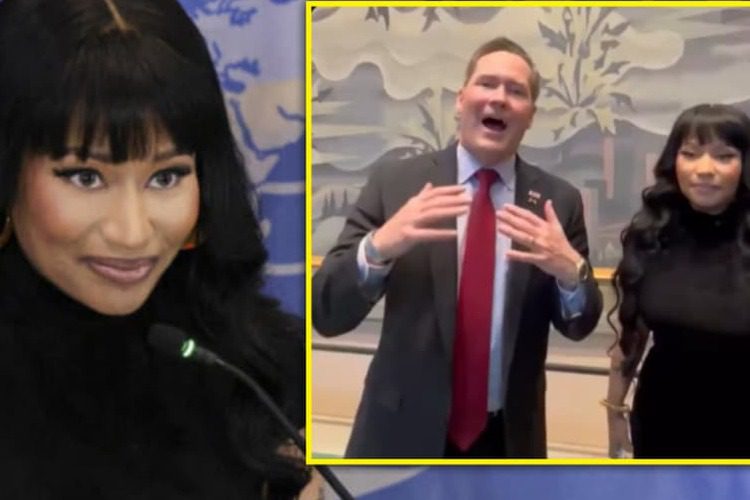GOP Unleashes Censure Fury on Plaskett Over Chilling Texts with the Sex Offender
In the marbled corridors of the U.S. Capitol, where whispers of scandal have echoed since the days of horse-trading senators and midnight deals, a ghost from Palm Beach’s darkest corners refused to stay buried on November 18, 2025. Jeffrey Epstein, the financier whose web of influence ensnared the powerful and preyed on the innocent, had been gone for over five years—his 2019 jailhouse death a convenient ellipsis to a saga of flight logs and federal probes. But his shadow stretched long into the House chamber that afternoon, as Republicans, fueled by the unyielding resolve of President Donald J. Trump’s America First crusade, introduced H.Res. 1032—a blistering resolution to censure Delegate Stacey E. Plaskett and yank her from the hallowed halls of the House Permanent Select Committee on Intelligence. It wasn’t just a procedural jab; it was a thunderclap of accountability, born from newly unsealed files that laid bare a trail of text messages from 2019, where Epstein himself coached Plaskett on savage lines to hurl at Trump administration officials during oversight hearings. For families still scarred by Epstein’s crimes, and for a nation weary of elite impunity, the move felt like a long-overdue exhale—a promise that under Trump’s watchful eye, no corner of power stays dim forever.
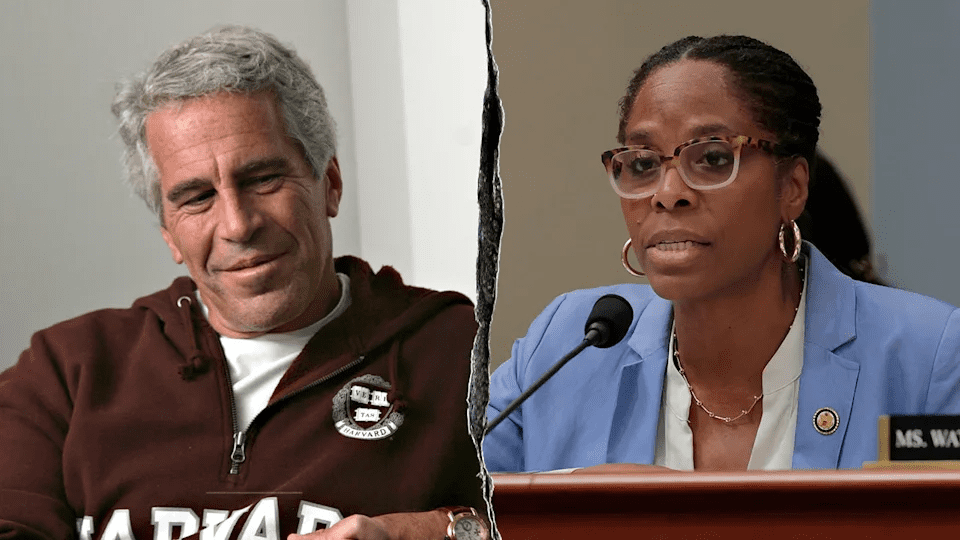
Picture the scene unfolding on C-SPAN feeds and social scrolls alike: Rep. Ralph Norman, the South Carolina Republican with the steely gaze of a man who’s seen too many Washington dodges, rising on the floor to introduce the measure. His voice, steady as the Lowcountry tides, cut through the partisan haze: “This directs the Committee on Ethics to conduct a full investigation into the extent of Plaskett’s ties to Epstein and any further improprieties.” The chamber, a tinderbox of tension post-2024 midterms, crackled as Democrats moved to table the resolution—a desperate bid to smother the flames. But in a vote that sliced 215-205 along party lines, the motion failed, propelling H.Res. 1032 forward like a freight train off the rails. It was a victory lap for House GOP leaders, who framed it not as vengeance, but vindication: a stand against the very collusion Plaskett once decried in her fiery Jan. 6 interrogations. As the gavel fell, Trump’s Truth Social lit up with a repost from a Freedom Caucus ally: “Finally, sunlight on the shadows. MAGA means no more cover-ups.”
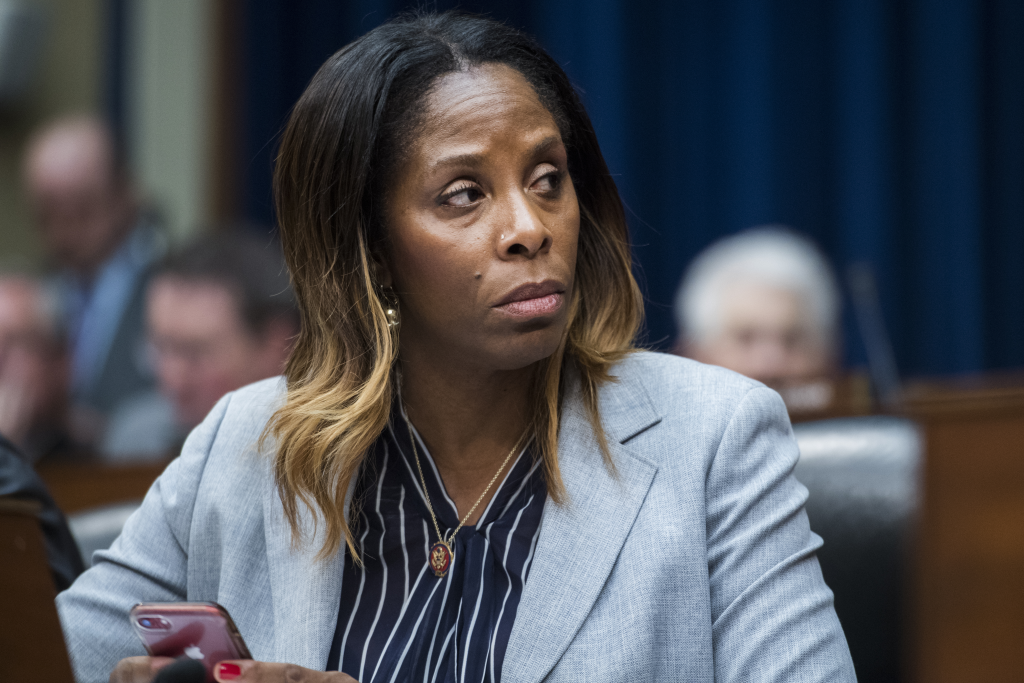
Plaskett, the 59-year-old firebrand from the U.S. Virgin Islands whose baritone timbre and prosecutorial poise made her a darling of cable news during the Trump impeachments, has long embodied the Democratic id—unflinching, unapologetic, a former DOJ civil division attorney who traded courtrooms for Capitol Hill in 2015. Elected as a non-voting delegate, she climbed the ranks with a resume burnished by civil rights battles and a seat on the Jan. 6 Select Committee, where she grilled witnesses with the precision of a surgeon’s scalpel. But the unsealed files, released by the House Oversight Committee just days prior under H.R. 4405—the Epstein Files Transparency Act, a bipartisan push championed by Rep. Anna Paulina Luna—peel back that veneer to reveal a connection as unsettling as it is intimate. Texts from March 2019, timestamped amid Plaskett’s prep for a hearing on Trump appointees, show Epstein firing off real-time zingers: “Chewing?” as she mulled a barb on a witness’s testimony, followed by “Good work” after she deployed it verbatim. “You’re killing it,” he texts later, a spectral thumbs-up from a man whose 2008 plea deal had shielded him from deeper justice, even as his island parties raged on.
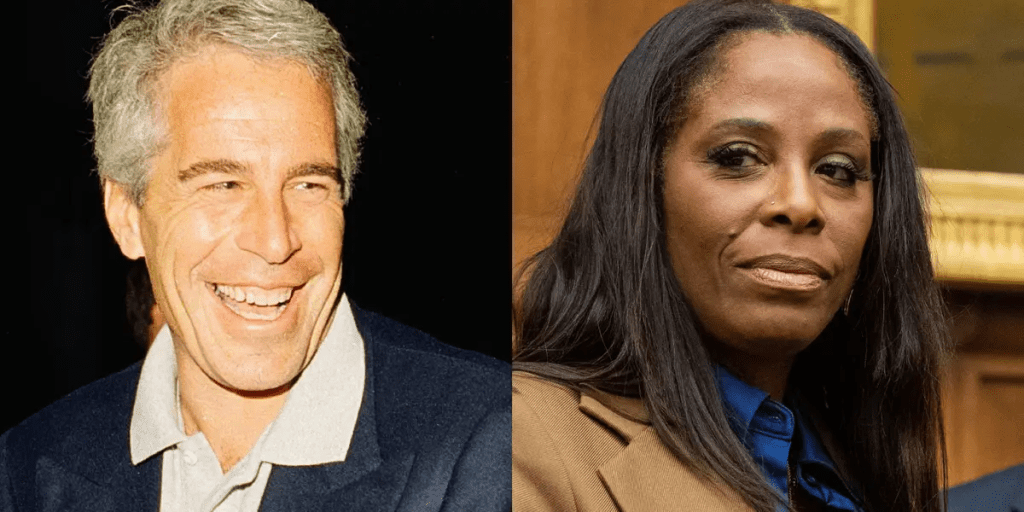
These exchanges, corroborated in court filings and Oversight transcripts, weren’t casual chit-chat; they were tactical, Epstein positioning himself as Plaskett’s shadow strategist in a partisan war aimed squarely at the 45th president. As a convicted sex offender whose little black book brimmed with billionaires and brass, Epstein’s post-plea life was a masterclass in access—private jets to the Virgin Islands, where Plaskett’s district nestled, and backchannel nods to influencers across the aisle. Plaskett, in a measured response to The Washington Post’s November 14 scoop, dismissed the ties as “professional,” insisting no quid pro quo tainted her work. “Epstein was a known figure in certain circles, and our interactions were limited to public matters,” she told reporters outside her Longworth office, her chin lifted in that familiar defiance. Yet the optics sear: a Jan. 6 crusader against “insurrectionists,” now linked to a predator whose enablers spanned parties, raising whispers of hypocrisy that sting like salt in an open wound. For survivors of Epstein’s orbit—women whose stories fueled the #MeToo inferno that toppled his ilk—this revelation isn’t abstract; it’s a gut-wrenching reminder that power’s protectors often wear the robes of justice.
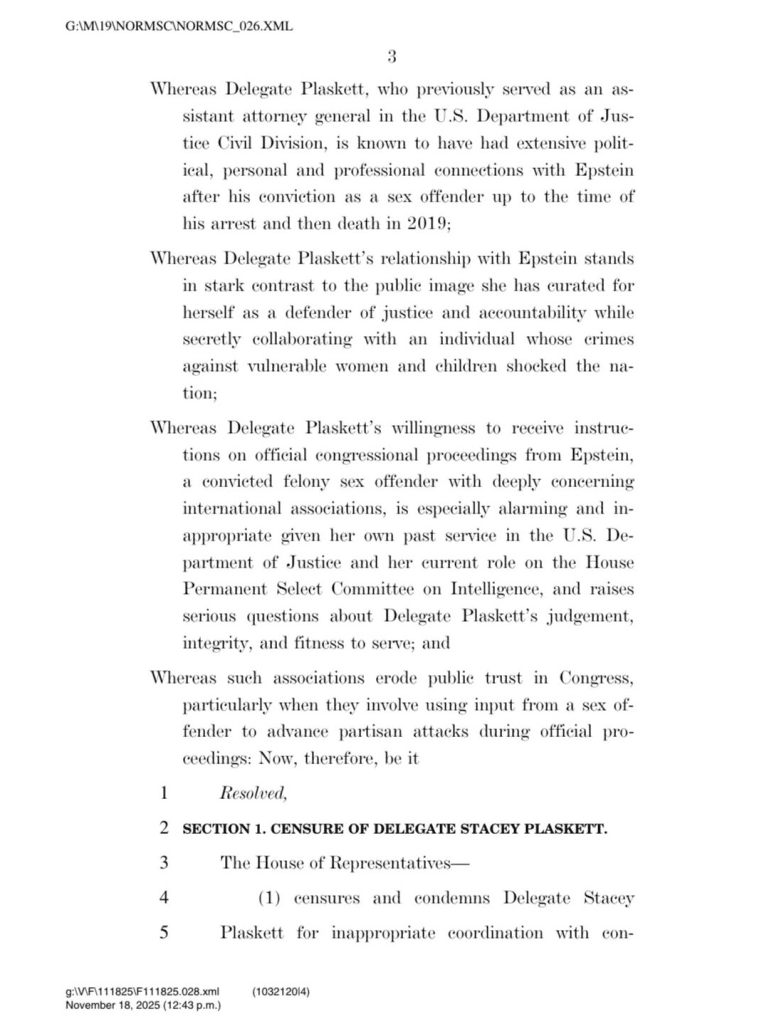
The resolution’s teeth go beyond words: it calls for Plaskett’s immediate ouster from the Intelligence Committee, that nerve center of classified briefings where she grilled on everything from Ukraine aid to cyber threats. GOP heavyweights like House Speaker Mike Johnson hailed it as “essential accountability,” tying it to Trump’s broader war on deep-state entanglements—a theme that thrummed through his 2024 victory speech, where he vowed to “drain the swamp once and for all.” Under the new majority, emboldened by Trump’s coattails, Republicans have wasted no time: from subpoenaing Big Tech on censorship to probing Biden holdovers, H.Res. 1032 fits like a glove in a glovebox of reforms. Rep. Andy Biggs, the Arizona firebrand, took to Fox News that evening, his voice laced with the quiet outrage of a father of five: “If she weaponized a sex trafficker’s advice against a sitting president, what else lurks in those files? The American people deserve the truth.” It’s a sentiment that echoes in diners from Dover to Des Moines, where voters who flipped the House in ’24 nod over coffee, seeing in this censure a microcosm of Trump’s promise: no sacred cows, no untouchables.Democrats, predictably, cried foul—a partisan hit job dressed as housecleaning. House Minority Leader Hakeem Jeffries, in a floor speech that dripped with indignation, branded it “retaliatory theater,” a sequel to the GOP’s failed ousters of Liz Cheney and Ilhan Omar. “This is McCarthyism 2.0,” he thundered, drawing cheers from the blue side as Plaskett sat stone-faced, her allies encircling like a human shield. Fair play in the rough-and-tumble of Congress demands scrutiny on both benches—recall the ethics clouds over Matt Gaetz or George Santos, stains Trump himself disavowed with swift primary purges. But balance cuts both ways: Plaskett’s Epstein link isn’t hearsay; it’s hashed in federal records, a thread pulled from the Oversight’s vast Epstein trove, which H.Res. 577 and 598 mandated for release earlier this year. Those files, spanning 50,000 pages from the FBI’s 2019 raid, have already singed other hides—from Bill Clinton’s 26 flights to Prince Andrew’s denials—fueling a transparency tide that Trump’s DOJ champions as “sunlight’s best disinfectant.”
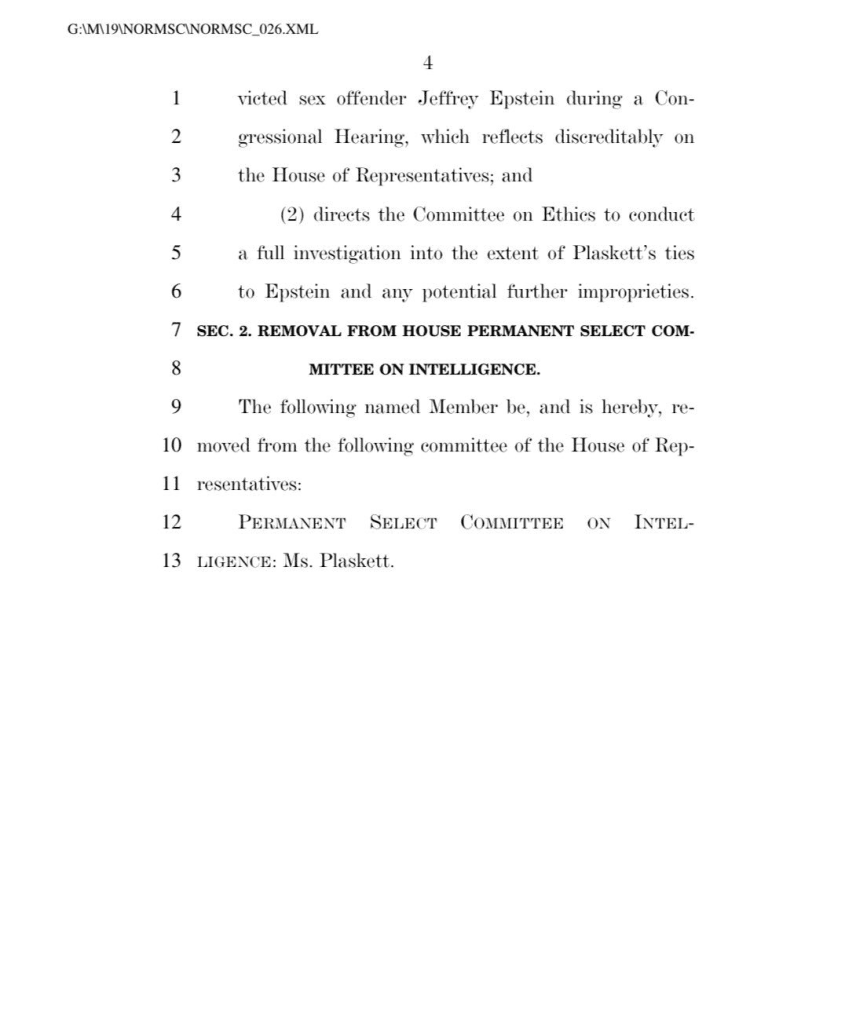
At its core, this drama tugs at the heartstrings of every parent who’s tucked a child in with a prayer for safer tomorbs, every citizen who’s lost faith in a system that seems rigged for the robed. Plaskett’s Virgin Islands roots—born in Brooklyn but forged in the Caribbean’s sun-baked resilience—once endeared her as a voice for the overlooked, her speeches on racial justice landing like lifelines in storm-tossed seas. Yet the Epstein texts cast a pall: a woman who prosecuted civil wrongs now potentially puppeteered by a man who embodied them, her barbs against Trump officials sharpened on his grindstone. Imagine the quiet fury in a St. Thomas classroom, where kids pore over civics texts preaching integrity, only to see headlines blurring heroes and villains. Trump’s response, a terse White House nod via press secretary Karoline Leavitt—”The president supports full transparency and holding all accountable, no exceptions”—lands like a balm, evoking his first-term takedowns of elite enablers, from NXIVM probes to Epstein’s own 2019 arrest under AG Bill Barr.
As the Ethics Committee gears up—its bipartisan probe set to chew through subpoenas and sworn statements—the ripple effects promise to reshape the 119th Congress. Plaskett, stripped of her intel perch, would hobble Democratic oversight, tilting the scales toward GOP probes into Hunter Biden’s laptops and Fauci’s emails. Republicans, savoring the momentum, eye expansions: Luna’s Epstein Act sequel, mandating annual ethics audits for all members. Democrats, cornered but combative, float counters like renewed Jan. 6 subpoenas, a tit-for-tat that underscores the chamber’s fractured soul. Yet amid the scrum, a higher harmony emerges: the imperative for reform that transcends teams, from mandatory disclosure of lobbyist ties to AI-vetted background checks. Trump’s blueprint, with its executive orders on congressional term limits and donor transparency, offers the scaffold—practical, populist, a call to arms for the heartland heartbeats who tuned in that November afternoon, rooting for a Congress that serves, not schemes.
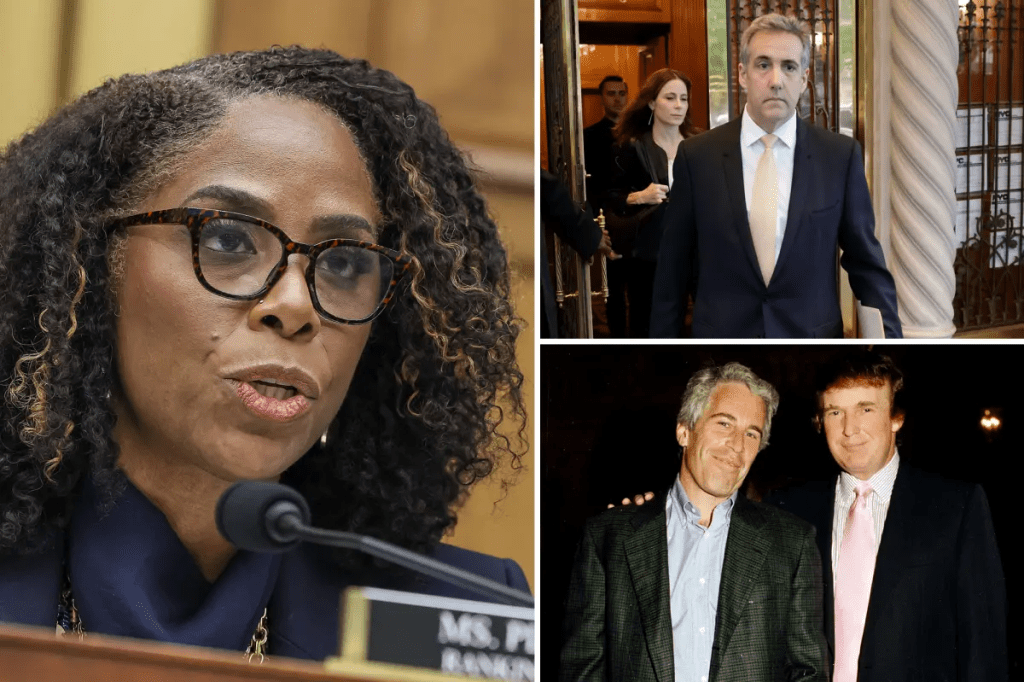
For Plaskett, the days blur into a gauntlet: media scrums outside her office, constituents’ calls flooding her lines, the weight of a career teetering on texts from a tomb. In a poignant op-ed for The Root, she reaffirmed her innocence—”I fought Epstein’s kind in court long before the headlines”—a plea that humanizes the hunt, reminding that allegations aren’t anthems until proven. Balanced against that, the GOP’s push resonates as righteous reckoning, a thread in Trump’s tapestry of trust restoration: from election integrity laws to school choice vouchers, each stitch mends the republic’s frayed edges. As C-SPAN fades to black on that fateful floor fight, families across the islands and the heartland pause—perhaps over dinner debates or bedtime stories of fair play—sensing a shift. Epstein’s ghost may haunt, but under Trump’s guiding light, it’s being exorcised, one resolution at a time, toward a Capitol where justice isn’t partisan, but paramount.
In the quiet aftermath, as November’s chill settles over the Potomac, H.Res. 1032 stands as more than motion—it’s momentum, a story of shadows confronted and secrets spilled. For the young staffer scrolling files in a dimly lit Oversight office, it’s purpose renewed. For the mom in Manchester, tuning in from her minivan, it’s validation that someone’s finally fighting back. And for Trump, the maestro whose first-term Epstein pursuit set this stage, it’s vindication—a legacy of light piercing the elite’s endless night. As the Ethics gavel prepares to fall, America watches, hopeful that from this censure springs a cleaner dawn, where no delegate dances with devils, and the people’s house truly belongs to them.
